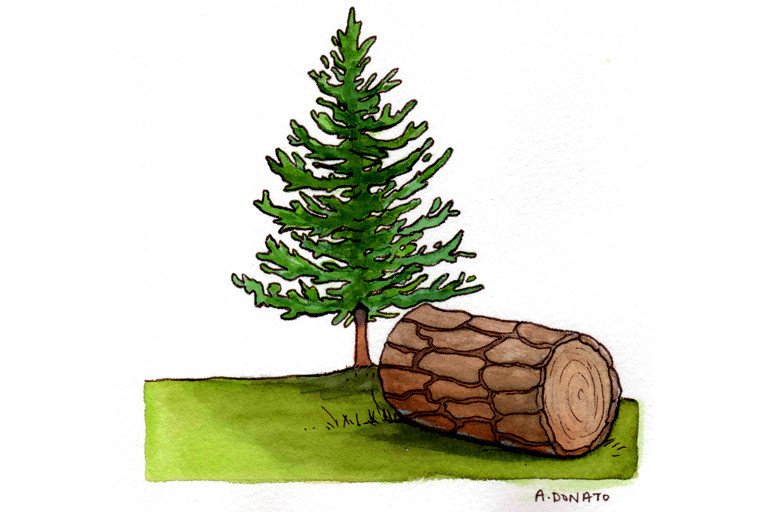
Common Names
- French Marine Pine Bark Extract
- Pine Bark
- Procyanidin Oligomers
- PCOs
For Patients & Caregivers
Tell your healthcare providers about any dietary supplements you’re taking, such as herbs, vitamins, minerals, and natural or home remedies. This will help them manage your care and keep you safe.
Pine bark extract is made from the bark of pine trees that grow in some Mediterranean countries.
Pine bark extract supplements come as capsules, powders, and tablets.
Pine bark extract is used to:
- Reduce inflammation (swelling).
- Improve cardiovascular (heart) health.
- Treat erectile dysfunction (ED, not being able to have or keep an erection).
Pine bark extract has other uses, but doctors have not studied them to see if they work.
Talk with your healthcare provider before taking pine bark extract supplements. Herbal supplements are stronger than the herbs you would use in cooking.
Supplements can also affect how medications work. For more information, read the “What else do I need to know?” section below.
Side effects have not been reported.
- Talk with your healthcare provider if you’re taking blood thinners, such as warfarin (Coumadin®, Jantoven®). Pine bark extract may increase your risk of bleeding.
- Do not take pine bark extract if you’re allergic to pine bark.
For Healthcare Professionals
Obtained from the bark of the French maritime pine tree, pine bark extracts contain procyanidins which have antioxidant properties. Various formulations using different species have been marketed, vary in amounts of procyanidins, and are often promoted for use in chronic conditions. Pine bark extract showed antioxidant, anti-inflammatory (6), immunostimulant (1), cardioprotective (20), and neuroprotective (31) effects in preclinical studies. It may also have antimicrobial activities (15) (16) (17).
Preliminary clinical data suggest it may reduce menopausal (8), dysmenorrheic (27), and osteoarthritic (9) (10) symptoms. A pine bark extract formulation improved oxidative stress and bone turnover markers in postmenopausal osteopenic women (39), and improved nutrition and clinical status in critically ill patients (40). Other data suggest pine bark extract may improve hyperpigmentation (11), erythema (12), and symptoms of endometriosis (13) and lupus (14). Improvements in endothelial dysfunction (2) (33) and chronic venous insufficiency (5) were also reported, but a meta-analyses found no benefit with pycnogenol on blood pressure (36), and insignificant effects cardiometabolic health (37). Another meta-analysis recommended against pycnogenol for musculoskeletal pain (38).
Pycnogenol may enhance memory in elderly participants (7), but studies in adults and children with ADHD yielded mixed results (3) (4) (42). When used in conjunction with L-arginine, pycnogenol improved erectile dysfunction symptoms (18) (29). Preliminary data suggest pycnogenol may reduce some adverse effects of radiotherapy and chemotherapy (30), but further research is needed. Systematic reviews have concluded that evidence is insufficient and that large-scale studies are needed to establish the value of various pine bark extract supplements for chronic disorders (34) (41).
- Inflammation
- Cardiovascular disease
- Erectile dysfunction
The primary constituents of pine bark extracts are procyanidins and phenolic acids (35). Pine bark extract acts as an antioxidant by scavenging reactive oxygen and nitrogen species and suppressing production of peroxides (21). It increases the activities of antioxidant enzymes by increasing the intracellular glutathione levels (22). In addition to increasing NO production which induces vasodilation (2), pine bark extract also blocks the NF-kB activation stimulated by tumor necrosis factor-alpha (TNF-alpha) and inhibits production of adhesion proteins that cause inflammation and atherosclerosis (22).
In vitro, pycnogenol induced apoptosis in human breast cancer cells (23) and reduced neuronal apoptosis, an important feature of Alzheimer’s disease, by decreasing free radical generation (24). In animal studies, cardioprotective effects were also attributed to free radical scavenging (20).
- Hypersensitivity to pine bark (26)
- May cause irritability and lower energy levels (26).
- Anticoagulant and/or antiplatelet drugs: Pine bark extract can inhibit platelet aggregation and may increase risk of bleeding when used with these drugs (28).